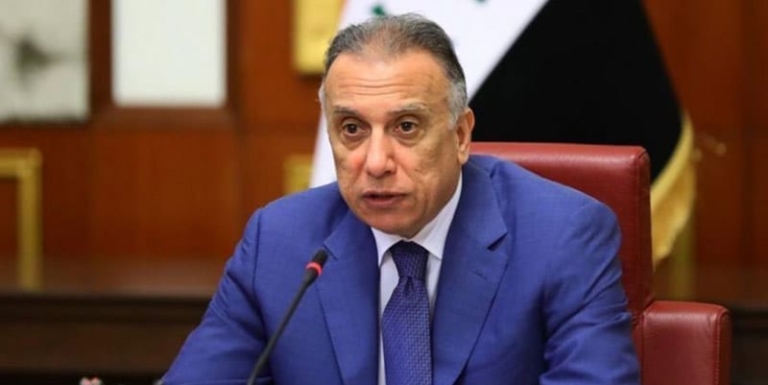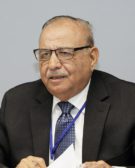
Serious challenges face Iraqi-American relations as Iraqi Prime Minister Mustafa Al-Kadhimi visits Washington on August 20, by invitation from the White House. His tenure as premier is under great strain following peaceful protests that led to the resignation of Prime Minister Adel Abdul-Mahdi and the failure of other candidates for the position to garner popular support and acceptance by Shia political factions and their armed militias.
Upon appointment, Kadhimi found himself beset by a panoply of crises he intends to resolve over the coming year. Chief among these are Iraq-US relations and the presence of American troops in Iraq, an issue that will consume his time during his visit in the American capital. Other pressing issues include control of the armed militias and the Iraqi state’s imposition of law and order and monopoly over weapons. Over the last few months, the militias have attacked American forces and vital assets in the country such as the American embassy in Baghdad and US personnel stationed at Iraqi military bases. To be sure, these two issues will dominate Kadhimi’s visit.
It is expected that American negotiators will insist on Iraq’s responsibility to resolve the militias issue by stripping them of heavy weapons and limiting their freedom of action. Kadhimi may also be pressured to introduce legislation in parliament aimed at criminalizing militia activity. This will be very hard for the prime minister to promise since he knows the militias are militarily powerful and that the Shia factions that control them have a majority in parliament. Americans are also likely to push for more commitment to fighting terrorism in the country in coordination with international efforts, a mission on which there is broad Iraqi agreement.
What also may be a subject for discussion is Kadhimi’s plan to hold early parliamentary elections in June 2021. The prime minister hopes that these elections will produce a different legislative makeup that could ease his job and loosen the grip Shia political parties wield over the chamber. Needless to say, this plan is hard to implement because of the control these parties exercise, not only in parliament but also in the country at large. Trying to diminish their power is arguably the most difficult undertaking Kadhimi may confront without direct and serious outside support.
As for the elections, certain conditions have to be in place to assure their success. One would be the creation of a new elections commission of independent judges not influenced by the dominant parties that have been responsible for poisoning the Iraqi street for close to two decades. Another condition would be to formulate a security plan that could keep militias away from the voting booths so that people feel free to choose their candidates. Such a plan could also safeguard the security of ballot boxes after the election. A third would be forcing religious authorities to stay away from endorsing any specific candidates or interfering in the electoral process. Finally, and perhaps most crucially, it is important to ensure the widest possible popular participation in the electoral process. Past experiences with elections have shown low rates of turnout, not because the Iraqi public does not want to participate but because it feels that participation has not produced a responsive parliament.
Moreover, Kadhimi will undoubtedly discuss Baghdad’s difficult economic conditions. Like other oil producers, Iraq is suffering from low oil prices and the general slowdown in the international economy. Washington’s assistance is essential. But the United States has specific demands in this regard such as expecting Iraq’s compliance with US sanctions on Iran and limiting electricity imports from the Islamic Republic. In this regard, Washington and Iraq may want to take advantage of Saudi and Kuwaiti offers to link Iraq to their electricity grid to secure the country’s needs.
Kadhimi may also want to request American assistance in helping Iraqi educational institutions, especially in higher education, to address serious deficits in funding and curricula. In addition, there are the problems of looted antiquities (some of which American authorities have confiscated), Iraq’s archival records that were looted after the 2003 invasion, and the coronavirus epidemic in the country.
Will Kadhimi’s visit to the United States be successful? What is important at this juncture is to gauge how convinced Washington is in Kadhimi’s agenda for Iraq and its future. Perhaps more critical is the capacity of the American capital today to deal with Iraq when it is beset by numerous problems ranging from the coronavirus pandemic to challenges related to the upcoming presidential elections.

